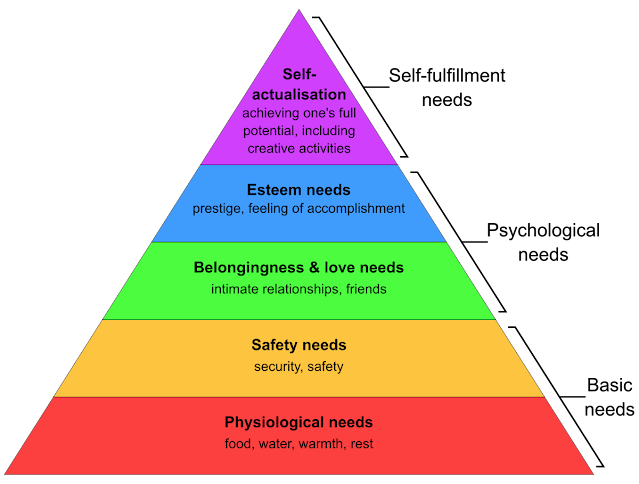When life throws us into the depths of despair, it can feel overwhelming and impossible to regain our footing. However, by turning to Maslow's Hierarchy of Needs, we can find a roadmap to guide us on the journey of recovery. Maslow's theory suggests that human needs can be categorized into a hierarchical structure, and by addressing each level in order, we can rebuild our lives and find a sense of balance.
At the foundation of Maslow's pyramid lies physiological needs. These are the basic requirements for survival, such as food, water, and shelter.
When hitting rock bottom, it is crucial to ensure these needs are met. Seek support networks, such as friends, family, or local organizations that can provide temporary assistance. By securing these fundamental needs, you can establish a stable foundation from which to rebuild your life.
Once physiological needs are fulfilled, attention should turn to safety needs. This involves creating a sense of stability and security in your life. Develop a plan to address any immediate threats or dangers. This may involve finding a safe place to live, seeking legal protection, or removing yourself from harmful situations. Taking steps to protect yourself and establish a sense of safety will provide a much-needed sense of relief and allow you to focus on higher-level needs.
The third level in Maslow's hierarchy is the need for love and belonging. Cultivating meaningful relationships and a support system is essential for emotional recovery. Reach out to friends, family, or support groups to build connections and find a sense of belonging. Surrounding yourself with positive influences and building healthy relationships will foster emotional healing and provide a network of support during difficult times.
Once these social needs are met, attention can shift to the fourth level: esteem needs. This involves developing self-confidence, achieving goals, and gaining recognition for your accomplishments. Take time to set achievable goals and work towards them. Celebrate small victories along the way, as they will boost your self-esteem and motivate you to continue progressing.
At the pinnacle of Maslow's pyramid lies self-actualization, the realization of one's full potential. This involves pursuing personal growth, creativity, and fulfilling your unique purpose. Engage in activities that inspire you, explore new interests, and seek out opportunities for personal development. By continually striving to become the best version of yourself, you will find fulfillment and a renewed sense of purpose.
Recovering from hitting rock bottom is a journey that requires patience, perseverance, and self-compassion. By using Maslow's Hierarchy of Needs as a guide, you can prioritize and build yourself up through each level, gradually restoring balance and finding meaning in your life.
Remember, recovery takes time, but with determination and the support of those around you, you can rise above your lowest point and build a brighter future.
Sources:
Maslow, A. H. (1943). A Theory of Human Motivation. Psychological Review, 50(4), 370-396.
Maslow, A. H. (1954). Motivation and Personality. Harper & Row.
McLeod, S. A. (2018). Maslow's Hierarchy of Needs. Simply Psychology. Retrieved from https://www.simplypsychology.org/maslow.html
Cherry, K. (2021). Understanding Maslow's Hierarchy of Needs. Verywell Mind. Retrieved from https://www.verywellmind.com/what-is-maslows-hierarchy-of-needs-4136760

Comments
Post a Comment